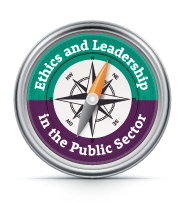There is no single best model for developing future leaders, because each local government has its unique public sector values to be emphasized and the management systems are different from county to county. Despite the diversity of strategies and approaches that could be adopted, some general and common trends in developing future leaders can be drawn from local government experiences.
• To define a competence profile for future leaders: The first step taken to develop future leaders was to define the competence profile for future leaders. The idea underlying this is that competencies required for future leaders could be different from those required for present leaders in terms of their responsibility, capability, and role. For this reason, it is essential to predict what forms the future public sector will take, and what challenges will be faced in order to identify and develop leaders suitable for the future environment.
• To identify and select potential leaders: Using the competence framework for future leaders, the next step is to identify and select potential future leaders. This issue involves the choice of whether to select future leaders from outside or to nurture them within the public sector. If local government puts more emphasis on the former method rather than the latter, it should also address the question of how to recruit “the best and the brightest” candidates in competing with other sectors.
• To encourage mentoring and training: Once potential leaders are identified and selected, the next step is to train them continuously. For this purpose, many local governments set up a specialized institution for leadership development. Others put greater emphasis on leadership in existing curricula and establish new training courses for the top executives or senior managers.
• To keep leadership development sustainable: As developing future leaders takes a long time, it is very important to keep the leadership development sustainable. To do so, developing a comprehensive program from the whole-of-government perspective is essential for developing future leaders. Allocating more of managers’ time to developing leaders, and linking incentives with performance for better leadership are crucial to the success of leadership development programs.
leadership development sustainable. To do so, developing a comprehensive program from the whole-of-government perspective is essential for developing future leaders. Allocating more of managers’ time to developing leaders, and linking incentives with performance for better leadership are crucial to the success of leadership development programs.
Leadership is an important and crucial variable that leads to enhanced management capacity, as well as organizational performance. A leadership focus also plays an integrating role among various Human Resource Management components including recruitment and selection, training and development, performance management, public service ethics, and succession planning.
I don’t put talent into people. I help let it out. Contact me TODAY and let’s get you MOVING on the right track!
Roland Gilbert, CLCO (Chief Life-Change Officer)
The Perennial Growth Group
Dale Carnegie Certified Trainer & Performance Coach
My mission is to coach individuals for intentional, authentic living. This mission is accomplished through workshops, speaking, writing and coaching. For over 10 years I have trained leaders and have helped people grow. My experience includes working with several large manufacturing corporations, hundreds of individuals and groups, and as an active ministry worker of my church. Because of my diverse background I am able to help clients effectively address all aspects of life

